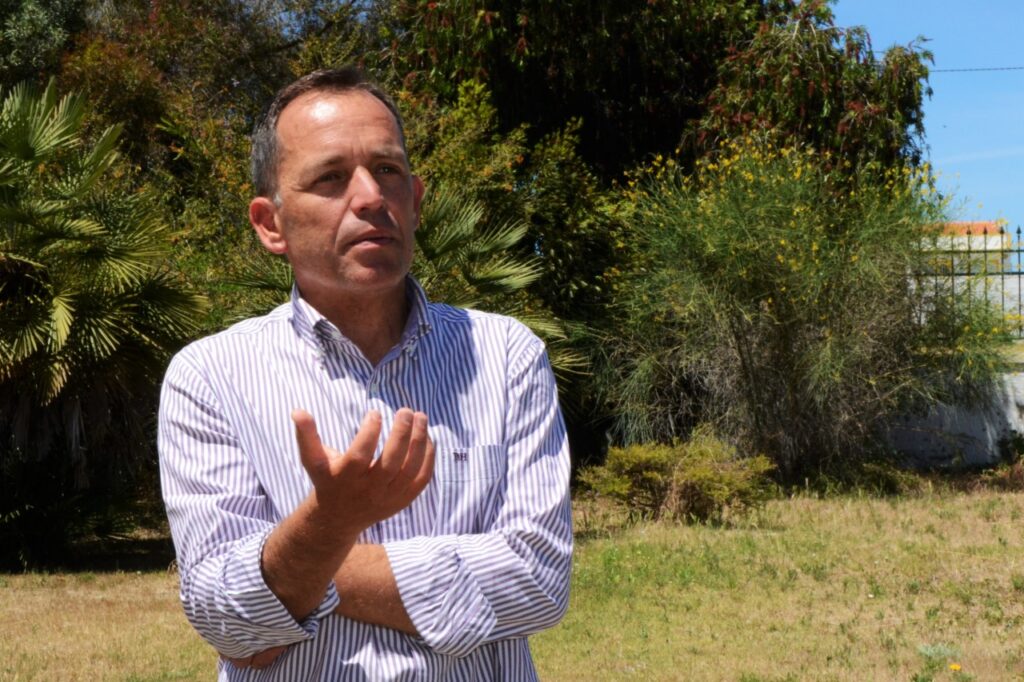The water table in the Algarve has levels below what would be expected for this time of year, causing a loss of groundwater quality and increasing the risk of salinization, warned today the regional director of Agriculture.
Speaking to Lusa, Pedro Valadas Monteiro, regional director of Agriculture and Fisheries (DRAP) for the Algarve, said that, although some groundwater levels are below 25%, “dramatic situations have not yet been reported” to regional services.
“There are one or two indications of some loss of quality [due to the low levels of groundwater reserves], but we still don't have situations of several cases of holes that have dried up or of brackish or salt water, we haven't reached that point yet ”, he indicated.
The risk of saline intrusion into groundwater reserves is greater in aquifers located in coastal areas due to phenomena related to climate change, such as rising sea levels, but also to the greater frequency of droughts and lack of rainfall in Portugal.
For Pedro Valadas Monteiro, the hot weather, the little water in the dams, the decrease in groundwater flows and the forecast of no rain for the coming months "leaves several uncertainties for the future of Algarve agriculture", which leads him to appeal to conscious use of water, an increasingly scarce resource.
“Although agriculture in the Algarve uses efficient irrigation systems, technology for water monitoring, the techniques and recommendations that the regional management has encouraged, the touchstone is the very judicious use of water”, he underlined.
The official recalled that last April was one of the hottest since 1931, with the Algarve registering heat waves with temperatures above 30 degrees, registering a decrease of about 07% in the storage of water in the dams.
“Faced with this reality, we must all make judicious and conscious use, not only in the agricultural sector, but must be extended to all economic sectors in the Algarve and domestic consumption”, he warned.
The regional director recalled that the drought situation, due to the evolution of the weather component, led to the activation of water management measures in various irrigation perimeters in the region, adjusted to the needs of agricultural crops.
“These are management measures, some of which foresee not supplying water for two days a week, in order to try to preserve as much as possible and ensure that the availability of water lasts for as long as possible. We don't know what tomorrow is going to be like,” she noted.
According to Pedro Valadas Monteiro, the regional department for Agriculture “is attentive and concerned with maintaining the viability conditions for what is installed on the ground, at a time when the effect of climate change is being experienced”.
“We have to adapt our practices and occupation of the territory to this scenario of less water, but with the concern of maintaining what is already installed”, he highlighted.
With regard to the investments foreseen in the National Water Efficiency Plan and in the Recovery and Resilience Plan (PRR), Pedro Valadas Monteiro warns that the availability of water may not increase significantly in relation to what currently exists.
“The most that will be achieved is not to have less water than what has existed, but rather to have the same amount that we got used to having in the past, which requires careful management”, he stressed.
Portugal is currently experiencing a serious drought situation, with the regions of Alentejo and Algarve being in the most critical situation, with Sotavento (east) Algarve experiencing severe drought.
Barlavento (west) also suffers from the worsening lack of rain and water scarcity, a region that accommodates the Bravura dam, which has only 13% of its water storage capacity.



















Comments